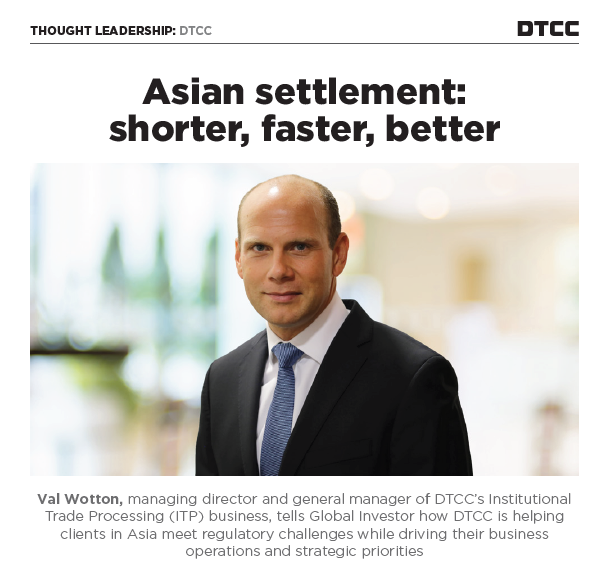MSCI: a benchmark overhaul bringing the world to China

Pulling off one of the most significant benchmark rebalances in history wasn’t easy. For several years global index provider MSCI sought to include China A-shares on its emerging market index in vain. But as China made efforts to liberalise, the MSCI made a move said to be a pivotal point for the emerging markets asset class.
A rocky road to inclusion
After three failed attempts since 2014, MSCI granted approval in July 2017 for A-shares to finally join its $1.9 trillion emerging markets index.
China stocks were already included via B-shares that are traded in foreign currency and are open to foreign investors.
However on May 31, MSCI was able to add 226 China large-cap A-shares - listed on the Shanghai and Shenzhen stock exchanges and quoted in renminbi. This gave investors the opportunity to invest on a meaningful scale for the first time.
“As we started to embark on the process we had a number of discussions with regulators as well as global investors, who pointed to the lack of transparency of the quota system and capital mobility restrictions as major concerns,” Jack Lin, head of APAC client coverage at the global index provider, says.
During discussions which spanned over five years, MSCI worked with the authorities to resolve issues around capital gains tax and other limits placed on foreign capital coming in and out of China.
Qualified investor schemes, which were introduced by China as a way to cautiously open its domestic market, had failed to provide the minimum level of market access that international institutional investors were familiar with.
Another stalling point related to the downturn in 2015 when a large number of stocks were suspended from trading, raising questions from foreign investors about why.
“The issues were not going to be resolved overnight but the communication seems to be there and authorities are continuing to liberalise and welcome foreign capital,” Lin says.
“So far we are quite happy with the process but it is a continuous dialogue with the relevant authorities and the impact on the policy changes are gradual,” he adds.
Timing also played a part. Global investors did not share the same enthusiasm when MSCI proposed to add China A-shares to its mainstream indexes five years ago.
The MSCI China Index already represented the largest country by market cap in the MSCI Emerging Markets Index.
However, foreign investors were unfamiliar with it because they were unable to access it. One of the big developments on the Chinese side came in December 2016 when the Shanghai-Hong Kong stock connect program was expanded to include Shenzhen-traded shares.
At last international investors were given the accessibility they were seeking.
The journey ahead
According to Lin, the inclusion of Ashares was an important development to coincide with liberalisation efforts.
Since MSCI announced that it would include China A-shares in its key indexes, the amount of Special Segregated Accounts – a proxy of international investors’ readiness to trade A-shares - soared from 1,700 at the beginning of Stock Connect to more than 6,300 today.
According to MSCI, more than 1,800 China A-shares, including those being added to the MSCI Emerging Markets Index, are held by Stock Connect investors - which is fast establishing itself as the primary channel to access A-shares.
“International investors can now contribute to the growing Chinese market, which is one that offers great diversification in terms of asset classes compared to other markets,” Lin says.
“We think that the inclusion process will continue and over time the weight of the inclusion in A-shares will increase,” he adds.
With 5% inclusion, China A-shares currently comprise less than 1% of the MSCI Emerging Markets index. Since MSCI announced it would include Ashares, the Northbound Connect AUM rose significantly.
Some $46 billion of foreign capital inflows were registered between June 2017 and September 2018, but Lin says there is potential for a significant increase.
“Chinese stocks listed in mainland as well as Hong Kong and other parts of the world could comprise more than 40% of the MSCI Emerging Markets Index, so this is a very important development that affects capital flows in a very significant way,” he explains. “The long-term implications are great both for China as well as global investors.”
Found this useful?
Take a complimentary trial of the FOW Marketing Intelligence Platform – the comprehensive source of news and analysis across the buy- and sell- side.
Gain access to:
- A single source of in-depth news, insight and analysis across Asset Management, Securities Finance, Custody, Fund Services and Derivatives
- Our interactive database, optimized to enable you to summarise data and build graphs outlining market activity
- Exclusive whitepapers, supplements and industry analysis curated and published by Futures & Options World
- Breaking news, daily and weekly alerts on the markets most relevant to you



